Finding the perfect canine companion often involves balancing adorable looks with practical considerations, and for many, shedding is a major concern. If you’re dreaming of a small dog but dread the constant battle against dog hair, you’re in for a treat! The world of dog breeds offers a delightful array of [cute small dog breeds that don’t shed], or shed minimally. These breeds are perfect for allergy sufferers, meticulous housekeepers, or anyone simply preferring a cleaner living space. Let’s explore some of the most charming and low-shedding small dog breeds available.
Choosing a dog is a significant decision, and understanding a breed’s grooming needs, especially regarding shedding, is crucial. While no dog is entirely “non-shedding,” certain breeds produce significantly less dander and loose hair, making them excellent choices for those sensitive to shedding. Our selection focuses on small breeds that embody cuteness while minimizing the hair left around your home.
Adorable Small Dog Breeds with Minimal Shedding
Many small breeds are celebrated for their charm and suitability for apartment living. When combined with a low-shedding coat, they become ideal pets for a wide range of households.
Affenpinscher
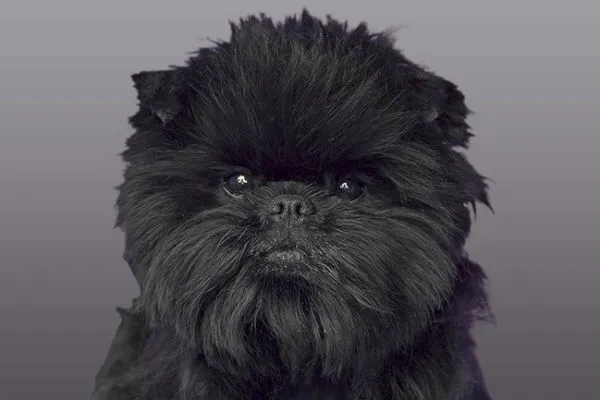 Affenpinscher dog
Affenpinscher dog
The Affenpinscher, meaning “monkey-like terrier,” lives up to its name with its intelligent and somewhat mischievous demeanor. These fearless little dogs are surprisingly alert, making them excellent watchdogs despite their small stature. Their wiry coat sheds very little and is also known for having minimal doggy odor. A twice-weekly brushing with a slicker brush and comb is generally sufficient to maintain their distinctive look, making them a low-maintenance choice for those seeking a humorous and tidy companion. If you’re considering this breed, exploring Affenpinscher puppies could be your next step.
Basenji
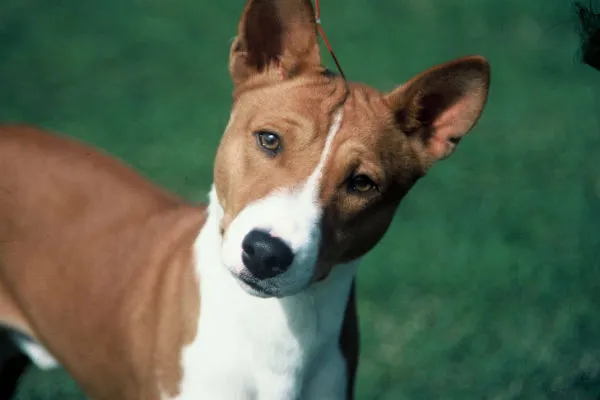 Basenji dog
Basenji dog
For those who admire hounds but are put off by their characteristic shedding and odor, the Basenji presents a compelling alternative. This breed sheds very minimally, and its short, fine coat requires little more than occasional brushing. Basenjis are also famously quiet, which makes them a fantastic choice for apartment dwellers, provided they receive adequate daily exercise and playtime. Their unique “yodel” is a distinctive vocalization, rather than a bark.
Bichon Frise
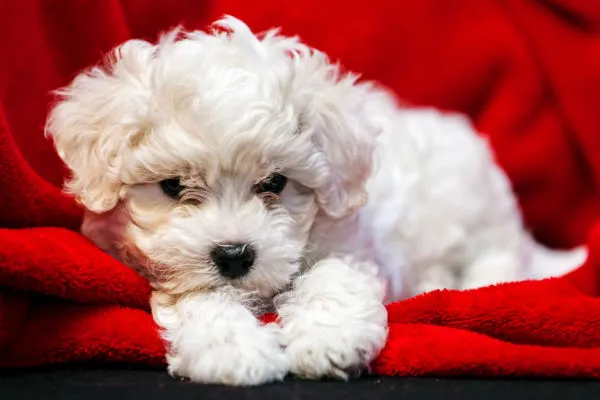 Bichon Frise dog
Bichon Frise dog
The Bichon Frise is a quintessential [small cute dog breed that doesn’t shed]. Their playful and affectionate nature makes them wonderful companions, and they are often a top pick for individuals with allergies. However, they are not maintenance-free. The Bichon Frise’s hair grows continuously and requires frequent grooming, including regular brushing and occasional baths, to maintain their signature “powder-puff” appearance. Their cheerful disposition and minimal shedding are significant draws.
Bolognese
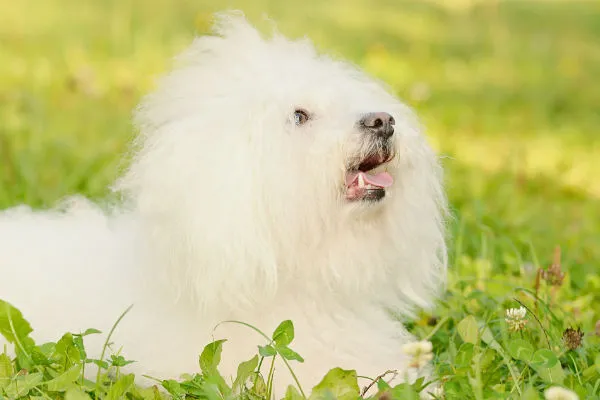 Bolognese dog
Bolognese dog
Similar to the Bichon Frise, the Bolognese boasts a distinctive fluffy coat made of hair rather than fur. This charming breed does not shed significantly, though dead hair needs to be brushed out regularly. Their coat demands daily grooming to keep these lovable lap dogs looking their finest. The Bolognese are known for their gentle and devoted nature, making them a joy to have around.
Brussels Griffon
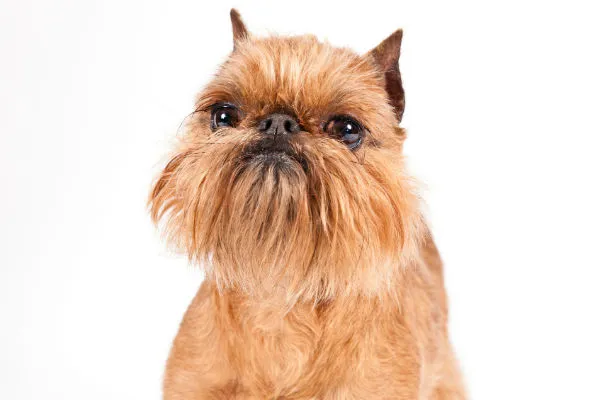 Brussels Griffon dog
Brussels Griffon dog
Don’t let their small size fool you; Brussels Griffons are robust and do not require excessive pampering. Available in both smooth-coated and rough-coated varieties, they are minimal shedders and benefit from regular grooming. Their exercise needs are easily met with a daily walk and indoor play, making them adaptable to various living situations. This loyal breed thrives in the company of families who can offer them plenty of attention. If you are looking for [small dogs that don’t shed and don’t need grooming], the Brussels Griffon might require more attention than expected due to their grooming needs, but their shedding is minimal.
Chinese Crested
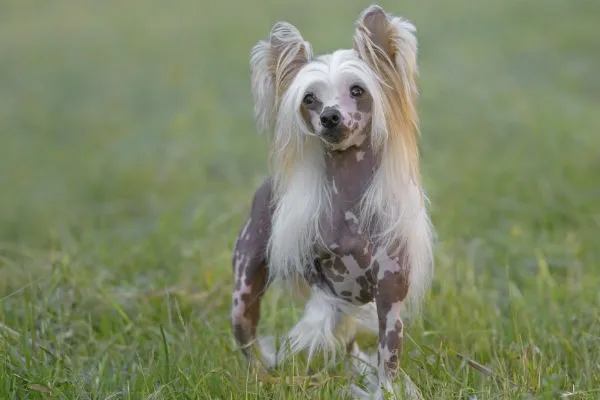 Chinese Crested dog
Chinese Crested dog
One effective way to avoid shedding altogether is to opt for a hairless breed. The Chinese Crested comes in two distinct types: hairless and powderpuff. The hairless variety has hair only on its head, tail, and feet, while the powderpuff is covered in fine hair that sheds very minimally. Hairless Chinese Crested dogs require special attention to their skin, needing protection from the sun and cold, and are more susceptible to irritations. Their unique appearance and low-shedding qualities make them stand out.
Coton de Tulear
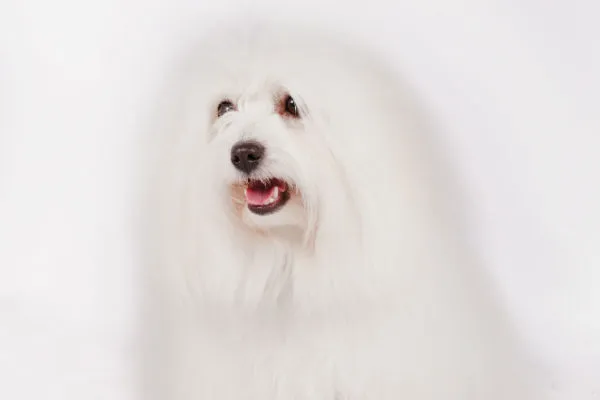 Coton de Tulear dog
Coton de Tulear dog
The Coton de Tulear is characterized by its distinctive, long, fluffy coat, often considered hypoallergenic dog breeds. This makes them a wonderful choice for individuals with allergies or anyone seeking a small dog with minimal shedding. While their coats require daily grooming to prevent matting, their lighthearted and gentle personalities make the grooming effort entirely worthwhile.
Havanese
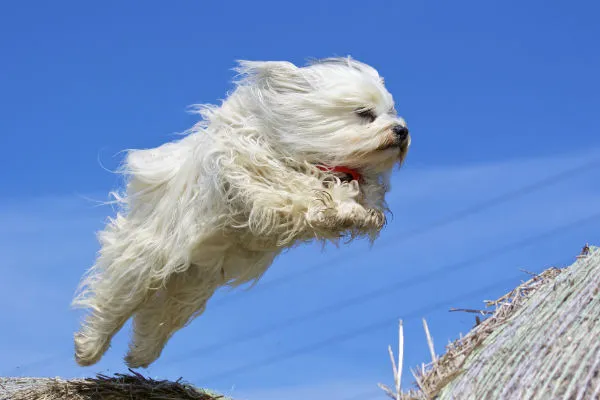 Havanese dog
Havanese dog
These charming Cuban natives offer owners a combination of spunky personality and a coat that doesn’t shed excessively. This means less time spent cleaning up after your pet and more time enjoying playtime. The Havanese coat requires weekly brushing and regular baths to maintain its health and cleanliness. Their joyful and affectionate nature makes them delightful companions for families.
Maltese
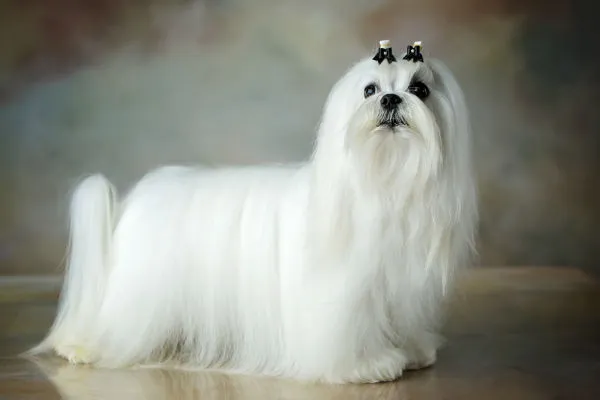 Maltese dog
Maltese dog
With a history spanning three millennia, the Maltese has consistently charmed its human companions. This ancient breed has maintained its appearance, partly due to its long, white coat that sheds very little, cementing its status as an ideal lap dog. Regular brushing is essential to prevent mats from forming in their silky hair, and occasional baths keep them looking their best. They are truly among the most elegant [cute small dog breeds that don’t shed].
Lhasa Apso
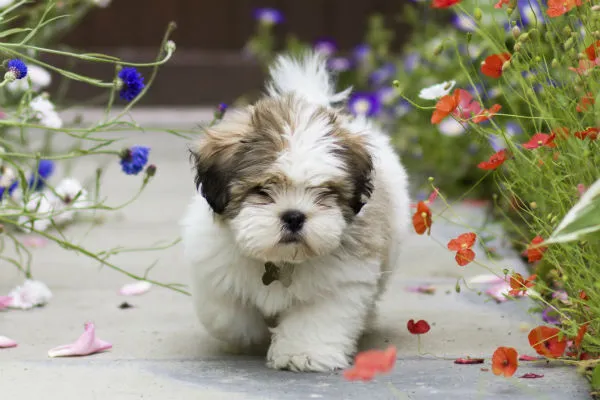 Lhasa Apso dog
Lhasa Apso dog
Originating from Tibet, the Lhasa Apso is an excellent small companion dog. Known for being calm yet playful, they enjoy brisk walks and relaxing with their owners. Lhasa Apsos are non-shedders, but their long coats do require consistent maintenance. Many owners opt for a shorter “puppy cut” to simplify daily grooming and brushing of their long hair.
Miniature Schnauzer
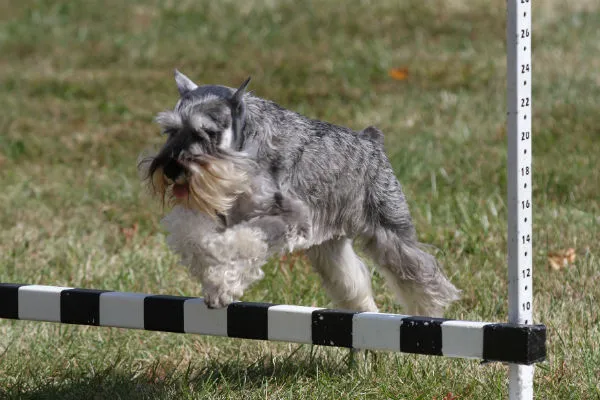 Miniature Schnauzer dog
Miniature Schnauzer dog
The Miniature Schnauzer is an intelligent, trainable, and cheerful breed that closely resembles its larger Standard Schnauzer relative. This Terrier group dog sheds very little, and their adaptable nature allows them to thrive in both urban and rural environments, provided they are with their people. Weekly brushing and regular professional grooming are recommended to keep their coats in optimal condition.
Poodle
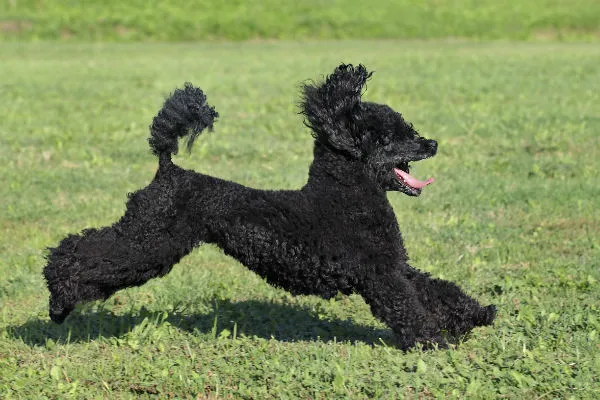 Poodle dog
Poodle dog
Poodles are perhaps the most well-known example of small dogs that don’t shed. Both Miniature and Toy Poodles offer hypoallergenic qualities in intelligent, petite packages. Poodles are highly intelligent and easily trainable, making them a pleasure to own. Their active and proud nature, combined with their non-shedding coat, makes them a popular choice, though regular grooming is essential. They are fantastic [small cute dog breeds that don’t shed].
Scottish Terrier
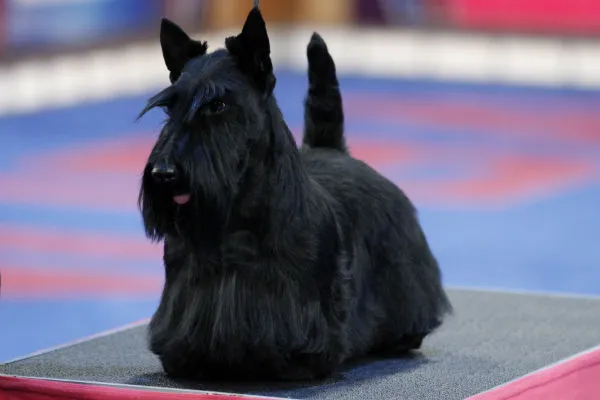 Scottish Terrier dog
Scottish Terrier dog
The Scottish Terrier, or Scottie, is a bold and confident terrier with a big personality. Their wiry, weather-resistant coat sheds very little. However, they do require regular brushing, grooming, and occasional hand-stripping to maintain coat health and the breed’s distinctive silhouette. Scotties are clever and independent, with a strong prey drive, so caution is advised around smaller animals.
Shih Tzu
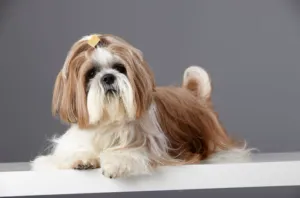 Shih Tzu dog
Shih Tzu dog
With a long and regal history, the Shih Tzu was a favored pet of Chinese royalty. These “little lion dogs” come in a variety of colors and patterns. Their long, silky hair is very low-shedding and looks exceptionally regal when brushed out. This sturdy and lively breed, often carrying themselves with a proud carriage, was bred primarily as a house pet, making them gentle and trusting companions.
West Highland White Terrier
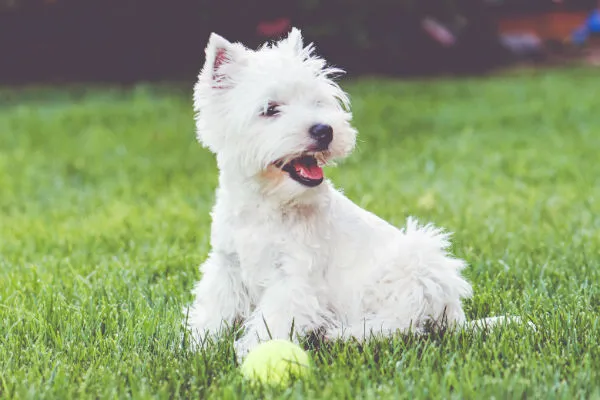 West Highland White Terrier dog
West Highland White Terrier dog
The West Highland White Terrier, affectionately known as the Westie, possesses a coarse, white coat that sheds very little. This sturdy, intelligent, loyal, and entertaining dog is known for its curiosity and moderate energy levels. Their independent streak, common among terriers, can sometimes make training a bit challenging, but their delightful personalities make up for it.
Xoloitzcuintli
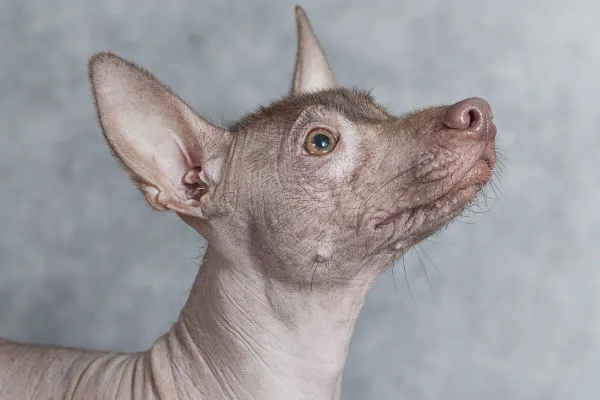 Xoloitzcuintli dog
Xoloitzcuintli dog
Also known as the Mexican Hairless dog, the Xoloitzcuintli is an ancient and rare breed that can be hairless or coated. Hairless varieties have a small amount of hair on their heads, while the coated variety has a very short, fine coat that sheds minimally. As with any hairless breed, the Xolo requires extra skin care to protect them from the elements. They are attentive watchdogs and affectionate companions, enjoying physical activity but known for their calm demeanor at home.
Yorkshire Terrier
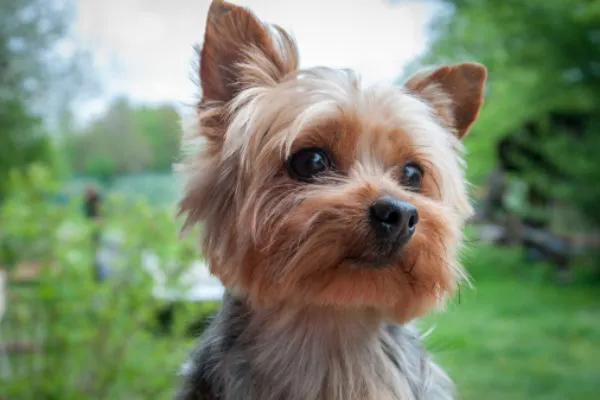 Yorkshire Terrier dog
Yorkshire Terrier dog
Sprightly, affectionate, and full of personality, the Yorkshire Terrier, or Yorkie, is a beloved Toy breed. These spunky lap dogs are a perennial favorite for their charming nature and non-shedding, silky coats. Daily brushing is necessary to maintain their beautiful hair. Despite their refined appearance, Yorkies have working-class roots, historically serving as rat hunters, though they are now equally content to be pampered house pets.
Exploring Other Low-Shedding Terrier Breeds
The Terrier group is a treasure trove for those seeking [small dogs that don’t shed] or shed minimally. Breeds with wiry and coarse coats, characteristic of many terriers, tend to shed less than others, making them excellent companions for people who prefer to avoid excessive hair.
Other Notable Low-Shedding Terriers
Beyond the breeds listed, several other terrier types offer low-shedding coats and charming personalities. These include breeds like the Border Terrier, known for its resilience and friendly nature, and the Cairn Terrier, famous for its role in “The Wizard of Oz.” These breeds often require regular grooming, including brushing and occasional stripping, to maintain their coat’s health and appearance.
Important Considerations for Non-Shedding Breeds
While the allure of a non-shedding dog is strong, it’s crucial to remember that “non-shedding” typically means minimal shedding. All dogs lose some hair and dander. Breeds that are often labeled as non-shedding have hair that grows continuously and is more likely to get trapped in the coat rather than falling out, requiring regular grooming to prevent matting.
When choosing among [small dogs that stay small and don’t shed], thorough research is paramount. Ensure the breed aligns with your lifestyle, energy levels, and commitment to grooming. Always consider purchasing from a reliable breeder, feeding a high-quality diet, and scheduling regular veterinary check-ups to ensure your new companion remains healthy and happy.
